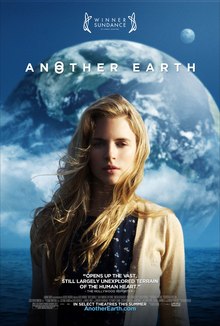So this info graphic from NextMovie is not entirely accurate, but it does show a general trend in "young adult" (translation- tweens and some teens, girls) literature and movies.
Now I haven't actually seen all these films or read all of these books, but I'll go by the information represented in this chart. And I'll discount Hermione because the information about her isn't accurate and she doesn't fit the trend I want to discuss (she is not a certain stock character type nor is she the main character of the Harry Potter series).
So some of the features these young women have in common:
-They're all white
-They all have a romantic interest
-They're all attractive, but lack self-esteem
-They're mostly highly desirable (men must fight over them)
-They're mostly virgins
-They all require some sort of protector, as they cannot be expected to fend for themselves. Of course this protector is male.
The message this sends young girls is pretty clear, and offensive in a couple of ways. Firstly, a white, thin, attractive young girl is the only possible heroine? Really? Although this isn't particularly out of place in pop culture, it certainly doesn't help young girls (the majority of whom look nothing like these twenty-something actresses) who are already bombarded with unrealistic body image expectations.
In the case of these films/books the heroine's attractiveness is actually integral to her character, because of the whole desirable/ love triangle thing. They exist to be fought over by attractive men rather than as their own person- this is also reflected in the "protector" category. Although these young women are classed as "fighters" apparently they must have a male protector to defend them.
What does this teach the girls who are reading or watching? Twilight, I think, is particularly harmful, because it teaches girls to surrender their individuality and freedom to be with a man. A lot of these are in the same vein, probably inspired by Twilight's success. I don't mean to say that there are no good young adult books- there are. I just wish there weren't so many following this exact formula.
Now I haven't actually seen all these films or read all of these books, but I'll go by the information represented in this chart. And I'll discount Hermione because the information about her isn't accurate and she doesn't fit the trend I want to discuss (she is not a certain stock character type nor is she the main character of the Harry Potter series).
So some of the features these young women have in common:
-They're all white
-They all have a romantic interest
-They're all attractive, but lack self-esteem
-They're mostly highly desirable (men must fight over them)
-They're mostly virgins
-They all require some sort of protector, as they cannot be expected to fend for themselves. Of course this protector is male.
The message this sends young girls is pretty clear, and offensive in a couple of ways. Firstly, a white, thin, attractive young girl is the only possible heroine? Really? Although this isn't particularly out of place in pop culture, it certainly doesn't help young girls (the majority of whom look nothing like these twenty-something actresses) who are already bombarded with unrealistic body image expectations.
In the case of these films/books the heroine's attractiveness is actually integral to her character, because of the whole desirable/ love triangle thing. They exist to be fought over by attractive men rather than as their own person- this is also reflected in the "protector" category. Although these young women are classed as "fighters" apparently they must have a male protector to defend them.
What does this teach the girls who are reading or watching? Twilight, I think, is particularly harmful, because it teaches girls to surrender their individuality and freedom to be with a man. A lot of these are in the same vein, probably inspired by Twilight's success. I don't mean to say that there are no good young adult books- there are. I just wish there weren't so many following this exact formula.

